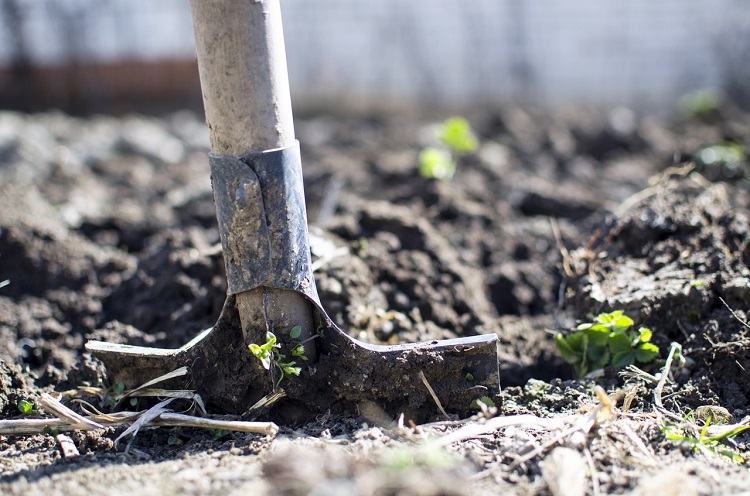
Last month, we caught up with Neil Wilcox, Information Officer at Thrive, about how gardening can help people from all walks of life build confidence, skills, and relationships. We look at some of the work that Thrive does, how you can get involved, and how social and therapeutic horticulture can benefit everyone.
Learning about Thrive
1. What is Thrive?
Thrive is the leading charity in the UK that uses gardening to bring about positive changes in the lives of people who are living with disabilities or ill health, or are isolated, disadvantaged or vulnerable. This is known as social and therapeutic horticulture (STH).
2. Why was Thrive set up? What was the driving force behind it?
Thrive was initially set up by Chris Underhill MBE in 1978 as the Society for Horticultural Therapy and Rural Training. Chris was inspired after seeing the benefits that working with plants and land brought to people who had blindness and learning disabilities, and wanted to set up an organisation based on these benefits. HT (Thrive, today) was established in Frome, Somerset with a small number of staff, supportive and generous trustees, and a mission to use plants and the outdoors to help people with disabilities or ill health.
You can read more on the history of Thrive here.
3. How is Social and Therapeutic Horticulture beneficial to those living with disabilities?
It is the process of using plants and gardens to improve physical and mental health, as well as communication and thinking skills.
It also uses the garden as a safe and secure place to develop someone’s ability to mix socially, make friends, and learn practical skills that will help them to be more independent.
Using gardening tasks and the garden itself, Thrive horticultural therapists build a set of activities for each gardener to improve their particular health needs, and to work on certain goals they want to achieve.
4. What makes gardening so helpful for health and well-being?
Gardens are peaceful and restorative. They provide a special place for rehabilitation and recovery. And, being given the opportunity to develop an interest in gardening will give a person benefits that can last a lifetime.
The benefits of an active interest in gardening are:
- Better physical health from exercise and learning how to use or strengthen muscles to increase mobility
- Improved mental health from gaining a sense of purpose and achievement
- The opportunity to connect with other people – reducing feelings of being alone or left out
- Feeling better for being outdoors, in touch with nature and seeing plants grow – all things that are known to be important to us as human beings
- The opportunity to learn new things, gain qualifications, move into volunteering or work.
Gardening can help because:
- It can be great physical exercise – which in turn helps boost your mood by releasing endorphins – our body’s own natural feel-good hormone
- You can work at your own pace and in small steps doing as much or as little as you like
- Regular gardening can help bring a new structure to your life
- You can learn new skills which might be useful in other areas of your life, such as volunteering or employment
- It can provide a great opportunity to meet people if you want to – for example by joining a gardening club or getting an allotment
- Gardening is fun, it can offer an opportunity to explore your creativity
- Tending plants can literally give you a reason to get out of bed in the morning and the satisfaction of knowing that you made it happen
- If you are finding everyday life hard to cope with, gardening outside could even help you take the first step out of the house
5. What does Thrive offer in terms of gardening and horticulture?
We work with a wide range of people... people who have injuries from accidents; people with learning impairment; people with mental illness; people with physical impairment such as sight or hearing loss; people with age-related conditions such as dementia, heart problems, diabetes or stroke; young people who have social, emotional or behavioural difficulties; and people who have ill health after leaving the armed forces.
We work in a variety of ways. We run therapeutic programmes at our garden sites in London, Reading, Birmingham and Gateshead. We also go out to care homes, village halls, and community projects to encourage gardening activities. And we have a special website that gives lots of information about how anyone can continue gardening at home www.carryongardening.org.uk
We also provide training and consultancy, from a one day introductory ‘Step into STH’ course to a one-year professional diploma run in conjunction with Coventry University.
6. How can people get involved with Thrive?
There are many ways to get involved with Thrive, including:
- Becoming a volunteer in the gardens or at one of the offices in Reading or London
- Raise funds by holding an event like an open garden or coffee morning, or join Thrive at one of their own
- Get physical and do a sponsored event like a run, cycle, or sponsored walk in aid of Thrive
- Support Thrive's members in their fundraising event
If you think you could benefit from Thrive's work, look into becoming a member today.




